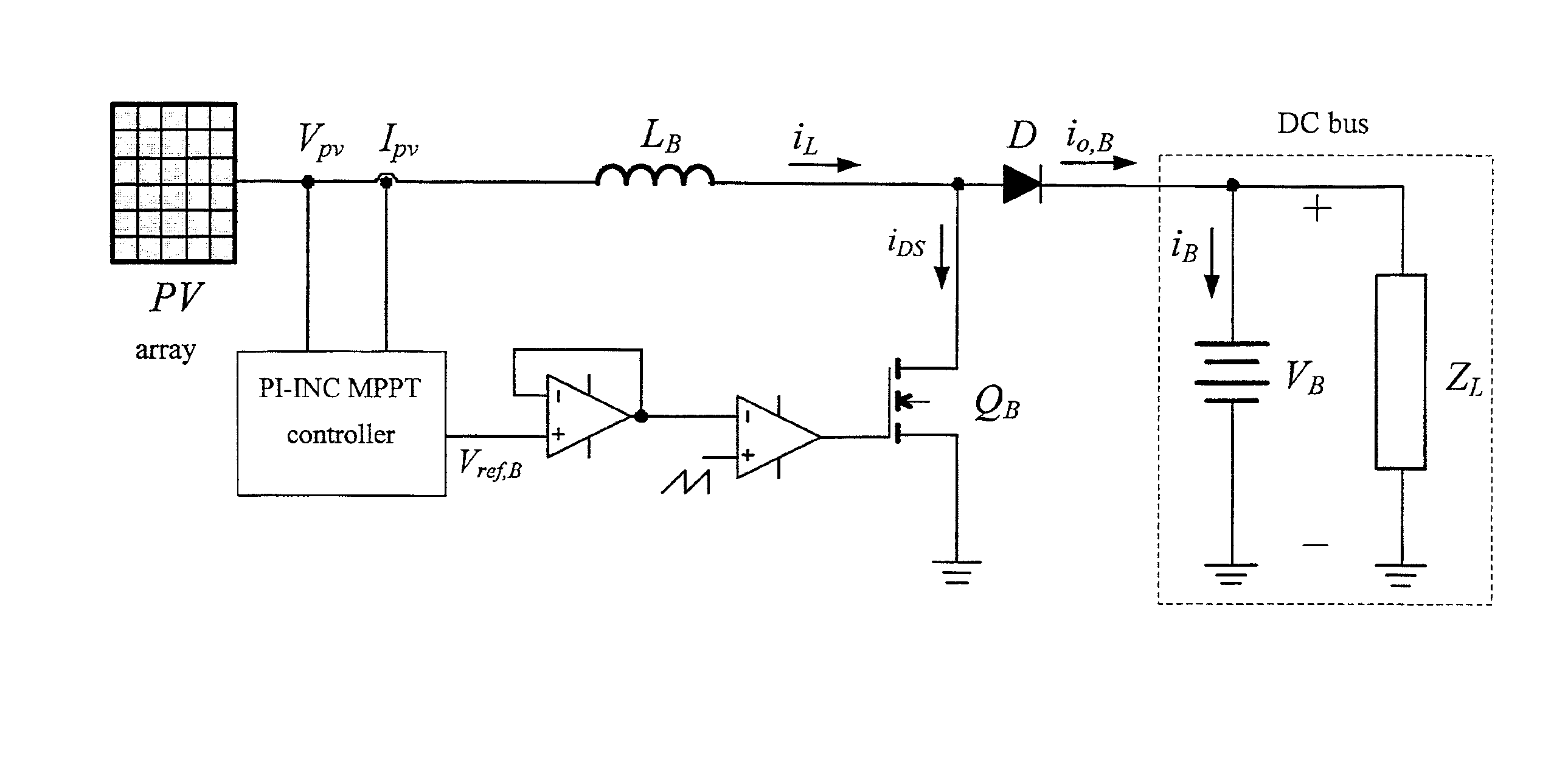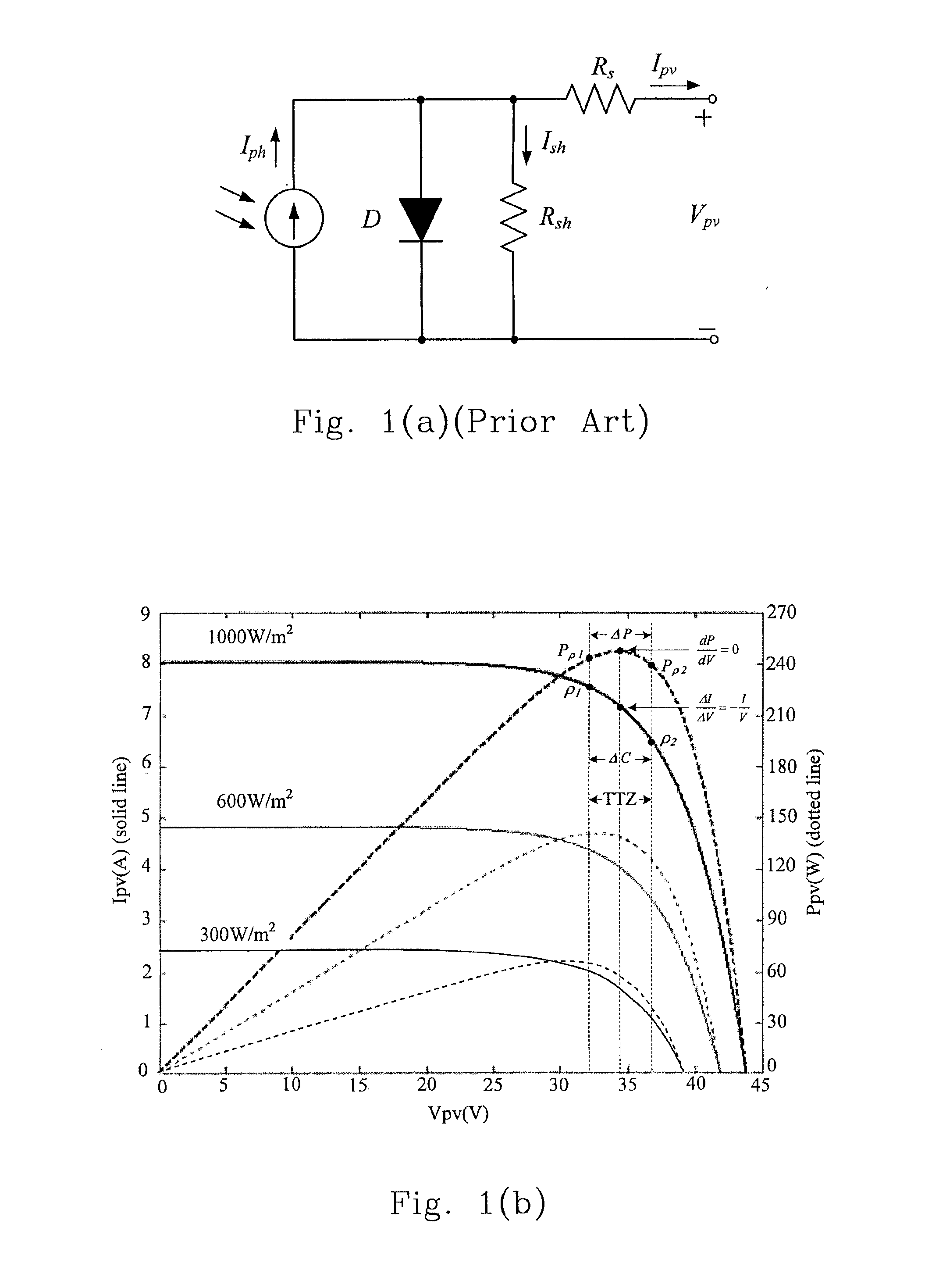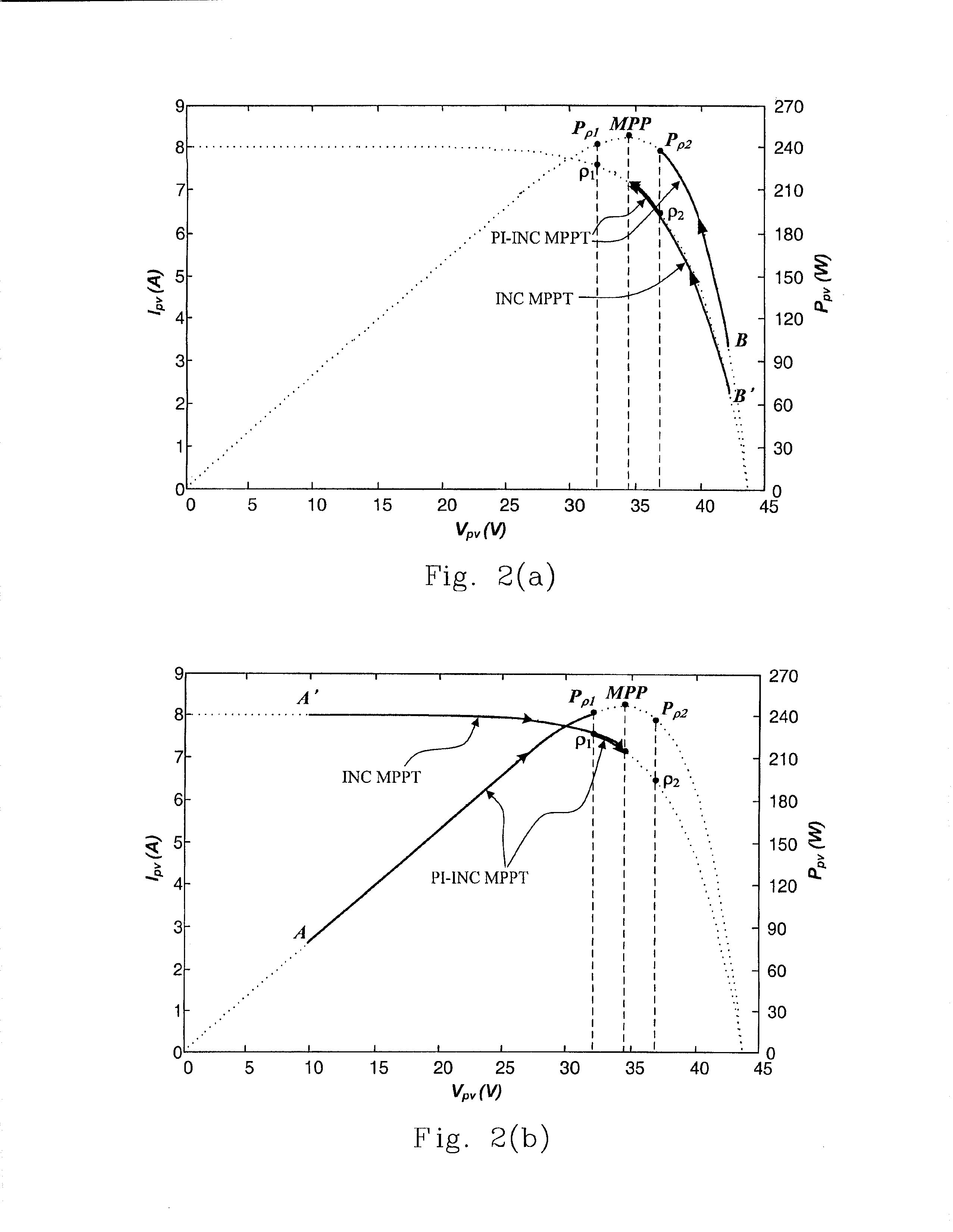Photovoltaic System Having Power-Increment-Aided Incremental-Conductance Maximum Power Point Tracking Controller Using Constant-Frequency and Variable-Duty Control and Method Thereof
- Summary
- Abstract
- Description
- Claims
- Application Information
AI Technical Summary
Benefits of technology
Problems solved by technology
Method used
Image
Examples
case i
[0046] Tracking in TTZ zone: the priority measure for guiding judgment is ΔC in (10) and the minor for monitoring is ΔP in (19).
[0047](1) The PI-INC MPPT guides the PV converter using INC tracking along the Ipv-Vpv curve toward MPP.
[0048](2) Once ΔC=−In+1 / Vn+1, corresponding to ΔP=0, the system will exactly operate at MPP that is kept by the PI-INC MPPT using INC tracking along the Ipv-Vpv curve.
case ii
[0049] Tracking beyond the TTZ zone: the priority measure for guiding judgment is ΔP in (19) and the minor for monitoring is ΔC in (10).
[0050](1) If ΔP≠0 but ΔP>Pρ1 in (20), in the left-hand side of TTZ, the PI-INC MPPT guides the PV converter using PI tracking along the Ppv-Vpv curve toward point Pρ1.
[0051](2) If ΔP≠0 but ΔPρ2 in (21), in the right-hand side of TTZ, the PI-INC MPPT guides the PV converter using PI tracking along the Ppv-Vpv, curve toward point Pρ2.
[0052]As shown in FIG. 3(a), it depicts a photovoltaic system according to the preferred embodiment of the present invention, being a photovoltaic DC link converter and including a PI-INC MPPT controller, and the controller uses a constant-frequency variable-duty (CFVD) control, and is guided by a control chart, wherein the control chart includes an Ipv-Vpv curve and a Ppv-Vpv curve, a dIpv / dVpv-Vpv curve, a dIpv / dVpv-dB curve, and a Po-dB curve (the above-mentioned curves are shown in FIG. 4). Besides, the photovoltaic s...
embodiment 1
[0074]2. A system , wherein the PI-INC MPPT controller uses a constant-frequency variable-duty control.
[0075]3. A system according to Embodiment 2 or 3 being one selected from a group consisting of a photovoltaic charger, a photovoltaic DC link converter and a photovoltaic inverter.
[0076]4. A system according to anyone of the above-mentioned Embodiments being the photovoltaic DC link converter and further comprising a photovoltaic (PV) array, a boost current converter, a pulse-width modulation (PWM) driver and a DC bus, wherein the boost current converter is electrically connected to the PV array and the PI-INC MPPT controller, the PWM driver is electrically connected to the PI-INC MPPT controller and the boost current converter, the DC bus is electrically connected to the boost current converter, and the PI-INC MPPT controller is used to cause the system to perform an MPPT.
[0077]5. A system according to anyone of the above-mentioned embodiments, wherein when a specific conductance ...
PUM
 Login to View More
Login to View More Abstract
Description
Claims
Application Information
 Login to View More
Login to View More - R&D
- Intellectual Property
- Life Sciences
- Materials
- Tech Scout
- Unparalleled Data Quality
- Higher Quality Content
- 60% Fewer Hallucinations
Browse by: Latest US Patents, China's latest patents, Technical Efficacy Thesaurus, Application Domain, Technology Topic, Popular Technical Reports.
© 2025 PatSnap. All rights reserved.Legal|Privacy policy|Modern Slavery Act Transparency Statement|Sitemap|About US| Contact US: help@patsnap.com



